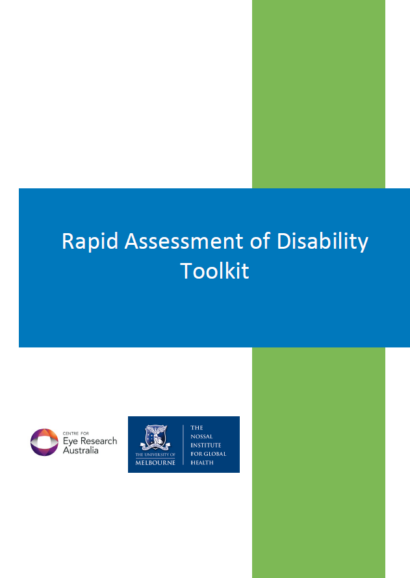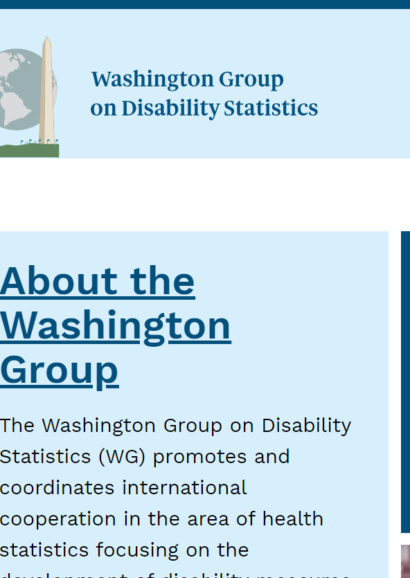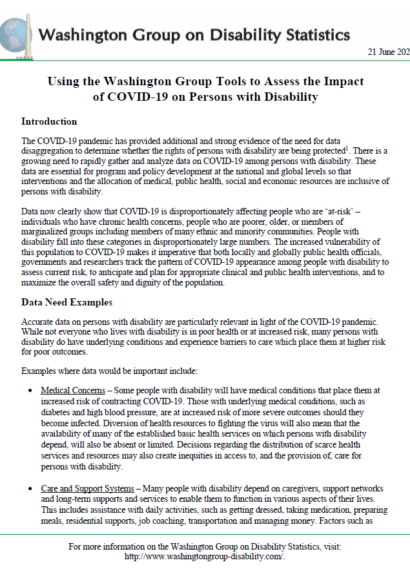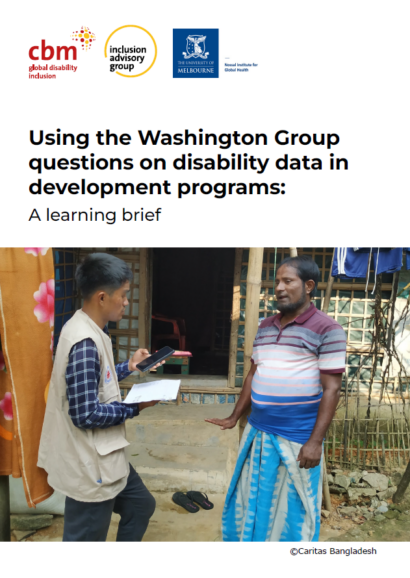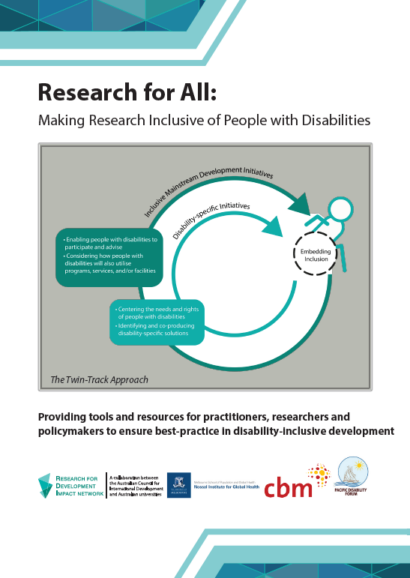The Rapid Assessment of Disability Toolkit
The Rapid Assessment of Disability (RAD) is a survey tool for collecting disability data developed by the Nossal Institute for Global Health and the Centre for Eye Research Australia.
Washington Group on Disability Statistics
The Washington Group on Disability Statistics promotes and coordinates international cooperation in the area of health statistics focusing on the development of disability measures suitable for census and national surveys.
Washington Group (2020) Using the Washington Group Tools to Assess the Impact of COVID-19 on Persons with Disability
This document provides guidance on how to use the Washington Group Tools in the context of COVID-19 and emphasises the importance of disability-disaggregated data.
CBM Global Inclusion Advisory Group (2023) Using the Washington Group questions on disability data in development programs: A learning brief
This learning brief is for development practitioners and project managers interested in collecting and using disability data in their programs.
CBM-Nossal Partnership (2020) Research for All: Making Development Research Inclusive
Research for All is a practical guide for practitioners, researchers and policy makers. The guidance provides case studies, checklists and practical tools to ensure inclusive practices in the research cycle.

